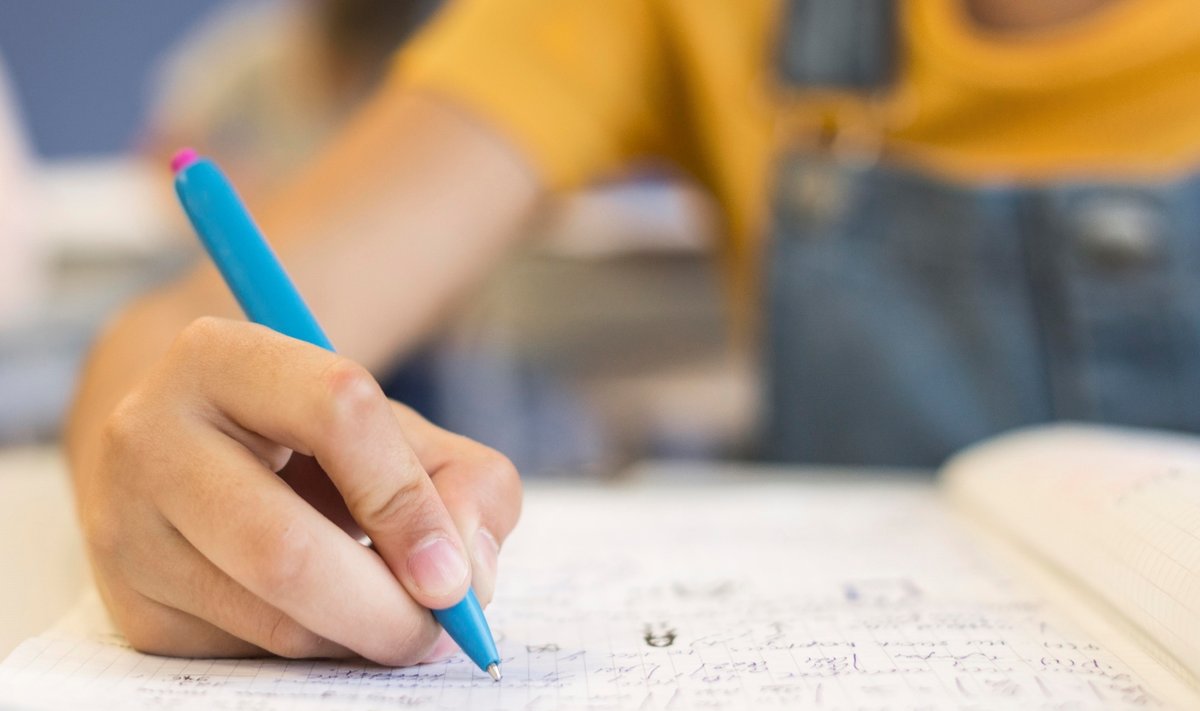Municipalities where the 14-day COVID-19 rate is below 200 per population of 100,000 will be able to do.
Among major cities, children will be able to go back to school in Kaunas, Panevezys, Siauliai and Alytus. But only certain primary schools where testing of pooled samples is being dine will be able to reopen in Vilnius and Klaipeda.
Under the changes submitted by Health Minister Arunas Dulkys, primary education in these municipalities will be done through a hybrid method and in compliance with the health minister's rules, including the management of flows of people, keeping a safe distance and other necessary conditions for public health safety, hygiene, and supply of PPE.
Remote learning will continue in the remaining 15 municipalities and children will be allowed to go to classes only as part of the ongoing pilots where testing of pooled samples from school communities is ensured.
Dulkys said during the Cabinet sitting on Wednesday that different solutions for municipalities are proposed in response to a drop in COVID-19 cases in some of them, i.e., lifting the existing restrictions is proposed in "certain municipalities where the 14-day COVID-19 rate is below 200 per population of 100,000".
PM: pooled sample testing won’t be mandatory
Prime Minister Ingrida Simonyte later told a press conference that polled sample testing in the 45 municipalities would not be mandatory for returning primary schoolchildren as the requirement would remain only in municipalities with the worst epidemiological rates.
"The requirement has been left for those municipalities where the epidemiological situation is the worst, including Vilnius and other municipalities where the case rate exceeds 200. Pooled sample testing won’t be mandatory in those municipalities where the situation is better," Simonyte said.
Moreover, the head of government also said it would "technically hardly possible" to carry out such tests for schoolchildren in all municipalities as major resources would be needed for that.
"We believe that in those municipalities where the situation is considerably better the risk is not that high to do that," the prime minister added.
Non-formal education and consultations for school-leavers
Residents of the 45 municipalities will also be allowed to visit libraries and reading rooms in groups of no more than two. Also, non-formal education of children and adults is also allowed for groups of no more than five people, if a floor area of 30 square meters is ensured for them.
The health minister also said that "taking into account the fact that school-graduation exams are approaching", schools are also allowed to hold in-class consultations for no more than five school-leavers.
Prime Minister Ingrida Simonyte says the upcoming two weeks until Easter will be "a major challenge". He urged municipalities to remain vigilant, stick to the measures and ensure that teachers get tested regularly.
The second national lockdown was introduced in Lithuania on November 7, and the majority of children moved to remote or hybrid learning, and primary schoolchildren, excluding four schools in Vilnius, have not attended classes since the middle of December.
